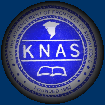
According to the report, Nakumatt Supermarket has issued a notice of its intention to remove all non conforming goods from its shelves as the deadline for compliance takes effect in all the EAC countries from 1st July 2008.
As previously posted here, Kenya Bureau of Standards has consistently alerted Kenyan manufacturers of the requirement for their manufactured goods to carry its standard seal indicating that their quality has been certified. However IP Kenya is sceptical of the extent to which adhering to the standard will advance the stated objective of eradicating the menace of counterfeiting and substandard products in the region.
To beat the deadline the counterfeiters may have moved ahead and put their act together to “comply” with the requirement by branding their products with the quality mark. As a recent case in Uganda demonstrates, at least some counterfeiters are ahead of the deadline and have branded their products with the diamond quality mark.
As reported here and here the case concerned importation into Uganda of counterfeits BIC pens by a Ugandan company Wenbara Trading Company Ltd. The pens were imported from China described as writing plastic materials but on verification by Ugandan Revenue Authority the cargo was found to contain pens marked as “BIC” and “made in Kenya”. The boxes containing the pens were also branded with the diamond mark of Kenya Bureau of Standards and falsely indicating that the pens were made by Haco Industries in Kenya.



